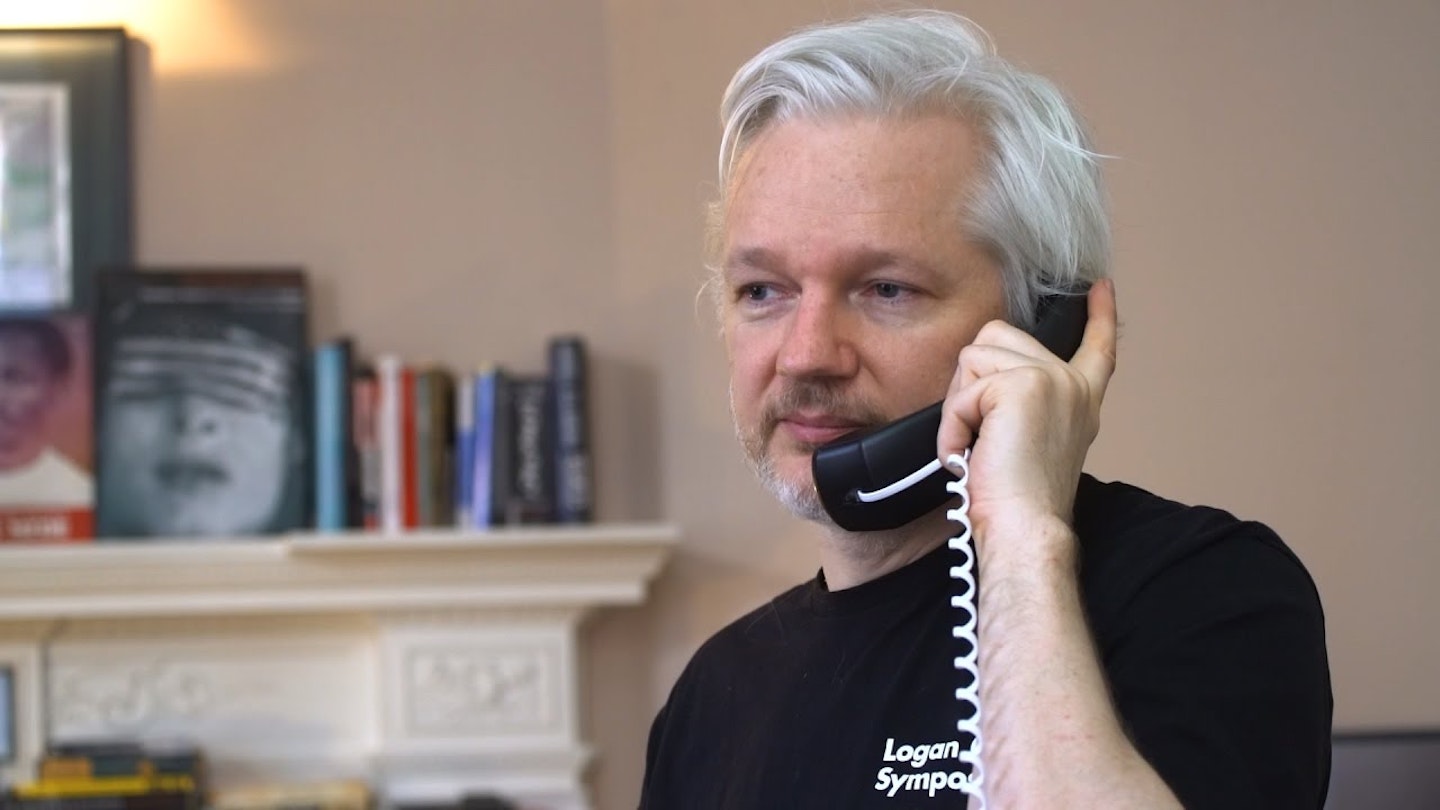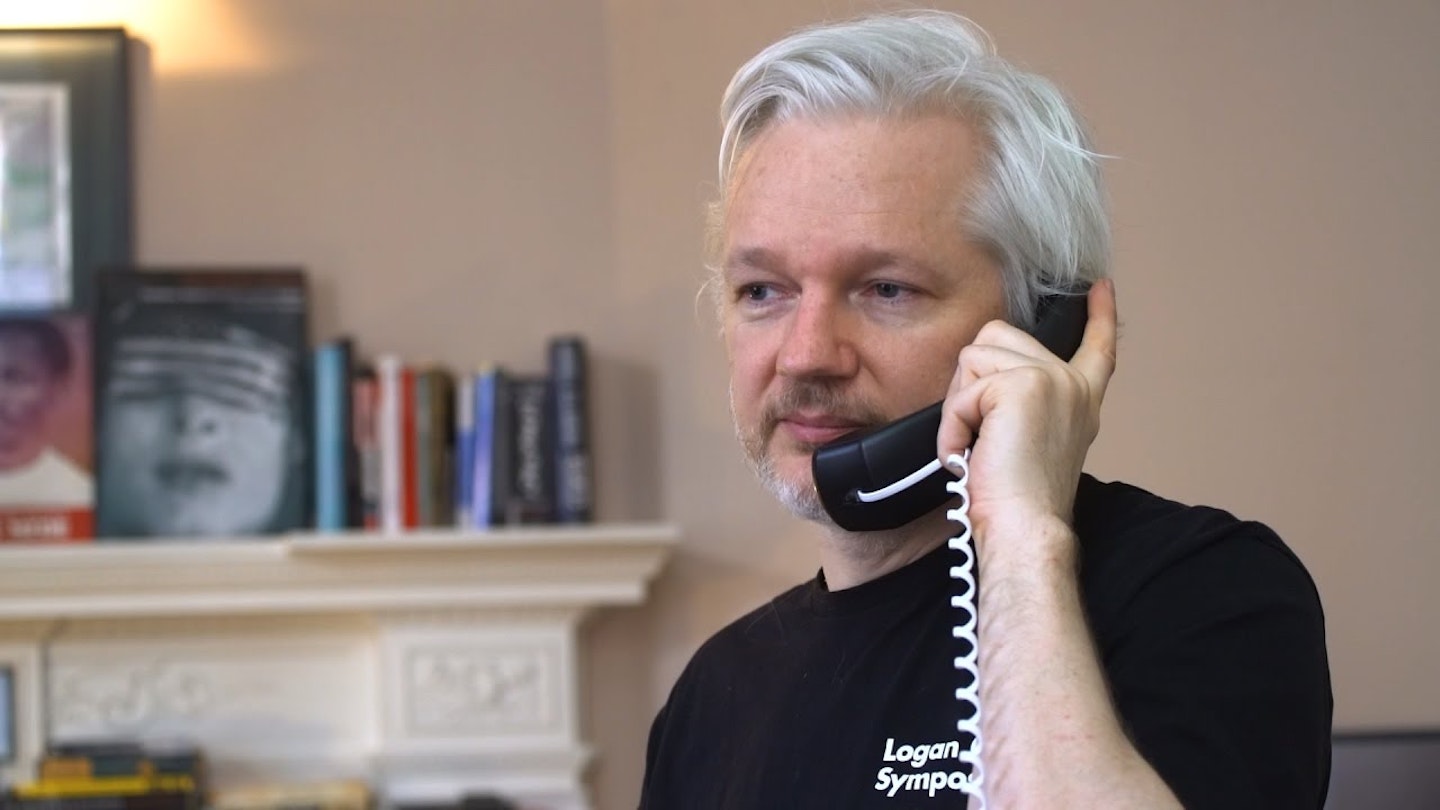
Risk offers up powerful passages of history in the making.
A kind of spiritual prequel to her Oscar-winning Edward Snowden documentary Citzenfour, Risk sees Laura Poitras take on another controversial figure, WikiLeaks founder Julian Assange. Shot over a six-year period and divided into ten subtitled chapters, it traces the Australian info crusader from the Cablegate dump revelations into his years of political asylum in London’s Ecuadorian embassy following charges of sexual assault brought by Sweden (the charges were dropped in May 2017, too late to include in the version Empire saw). The portrait that emerges is a complex one — he is by turns hyper intelligent, arrogant, self-aware, self-centred and misogynistic — and the access and insight is unparalleled and extraordinary. Yet what it doesn’t do is tell a dynamic story or offer a challenging point of view on its subject matter.
At its best, Risk offers up powerful passages of history in the making. The film opens with Assange and British WikiLeaks editor Sarah Harrison warning the Secretary Of State (literally, it’s, “Can I speak to Hilary Clinton please?”) about the ‘Cablegate’ dump and a fantastic conversational waltz with Assange and a White House lawyer as they dance around issues of freedom of information. Some moments boast the frisson of a real spy movie — Assange talks to a WikiLeaks lawyer in a forest for fear of being overheard and sends Poitras off to investigate a rustling sound; Assange dyes his locks and dons contacts to enjoy a rare taste of freedom on a motorbike — and elsewhere there are some telling off-guard moments: a cadre of cooing companions cut his hair while the Beach Boys’ Kokomo plays in the background. It’s a strange, scary world Assange inhabits and kudos must be given to Poitras for revealing it, bravely weathering Government scrutiny in the bargain.
Yet, for all its insights, the film suffers from a muddled premise: is it a personal portrait of Assange? An overview of WikiLeaks? Or is it a meditation on the dangers of unmonitored electronic surveillance? At one point, WikiLeaks foot soldier Jacob Appelbaum visits a tech conference in Egypt and rips into tech firms like TE Data and Nokia for colluding with President Mubarak on censoring the internet and disseminating propaganda. It’s a gripping, intense showdown, but does little to play into the portrait of its protagonist. There is so much drama swarming around Assange — Chelsea (then Bradley) Manning, the Spy Files, Trump’s links to Russia get a late hearing — Poitras seems overwhelmed in trying to coral it into a compelling narrative. It also doesn’t help that Assange holes up in the Ecuadorian embassy — meaning there are lots of shots of him looking out of the window, not the best cinema — or that Poitras left to follow Edward Snowden (and Sarah Harrison) for Citizenfour. Too often the storytelling drive eddies rather than flows.
The film also offers little in the way of interrogation of its subject. A ‘production journal’, presented as a voiceover from the director, has Poitras worrying about “the lines being blurred” or her “inability to ignore the contradictions” but these issues don’t get addressed in the film. Instead, she passes the cross-examination onto two formidable, if very different, women. QC Helena Kennedy, Assange’s lawyer for his sexual assault case, wearily suggests that he shouldn’t publically dismiss the allegation as “a mad feminist conspiracy”, her eye-roll conveying a thousand words. And bizarrely, Lady Gaga, visiting Assange holed up in exile, plays Paxman while filming with a tiny camera and drawing some fascinating answers. To her simple question about his favourite food, he responds, “Let’s not pretend I’m not a normal person.”
It’s perhaps the most revealing moment in a film high on intimacy, if not perspective.
